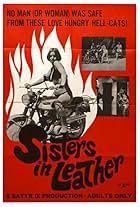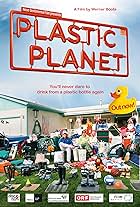I do not understand why these documentary filmmakers feel that it would somehow compromise their work to use a narrator to explain those things that cannot be covered by interviews. Unless of course they're being hounded by commercial forces who think that documentaries should resemble reality television because it's more "mainstream" these days. The "let the interviews tell the story" sans narrator approach which is very much in vogue these days not only leave me feeling like the work is incomplete but it starts to lose my interest as the questions that pop up in my mind start to overtake what I'm seeing.
This documentary should have been a lot better than the resulting final version. The subject-matter is first rate: the heist of some of the most priceless artwork, one of the most significant art crimes perpetrated during the late 20th century. Relying exclusively on interviews always leave me with so many unanswered questions. In short, this is a story, and I feel like I'm not watching a story just watching a bunch of people being interviewed. Tell me the story!
Also, it wasn't clear exactly the main point of the documentary. It's like the producers didn't understand the difference between topic and thesis. Certainly the topic is the art heist. But the point or thesis is what the film is trying to say about the heist above and beyond simply that there was a heist and there is an on-going investigation. A narrator would help on both counts: to explicitly state the reason for the documentary besides just clarifying a topic, which is essentially what Wikipedia does.
Besides the need for a clear thesis to give the piece its much-needed focus, here are some of the things I would like to know that were not made clear in the documentary: 1. The names of all the paintings and their respective artists. 2. The market value of each of the works. 3. The exact circumstances of the heist. 4. Who were the first investigators? 5. Who was in charge of the initial investigation? 6. Who were the first suspects? 7. When and why was Harold Smith called? 8. What is the history of Harold Smith? 8. When did he become a recognized art detective? 9. What was the state of the investigation when he signed on? I could go on with about 50 more questions that could have been easily answered by a narrator.
None of the above points are made clear. I think the history of Harold Smith would have really given a nice flavor to the whole documentary, chronicling his early successes as an art detective. I would have liked to hear not only his previous cases but also what had happened to his body, which is referred to but never explained. Did something happen during one of his investigations?
Overall, I couldn't keep my interest in the documentary because so many questions kept popping up in my mind and again always unexplained. I would rather hear that the footage showing people introducing each other in front of a home before a major interview. Even CBS' 60 Minutes pieces use a narration to keep us focused. And maybe that's the best way to sum up my problem with this documentary. It never seemed focused. It comes off more like reality television. Maybe more people want reality television. I want the story.




















